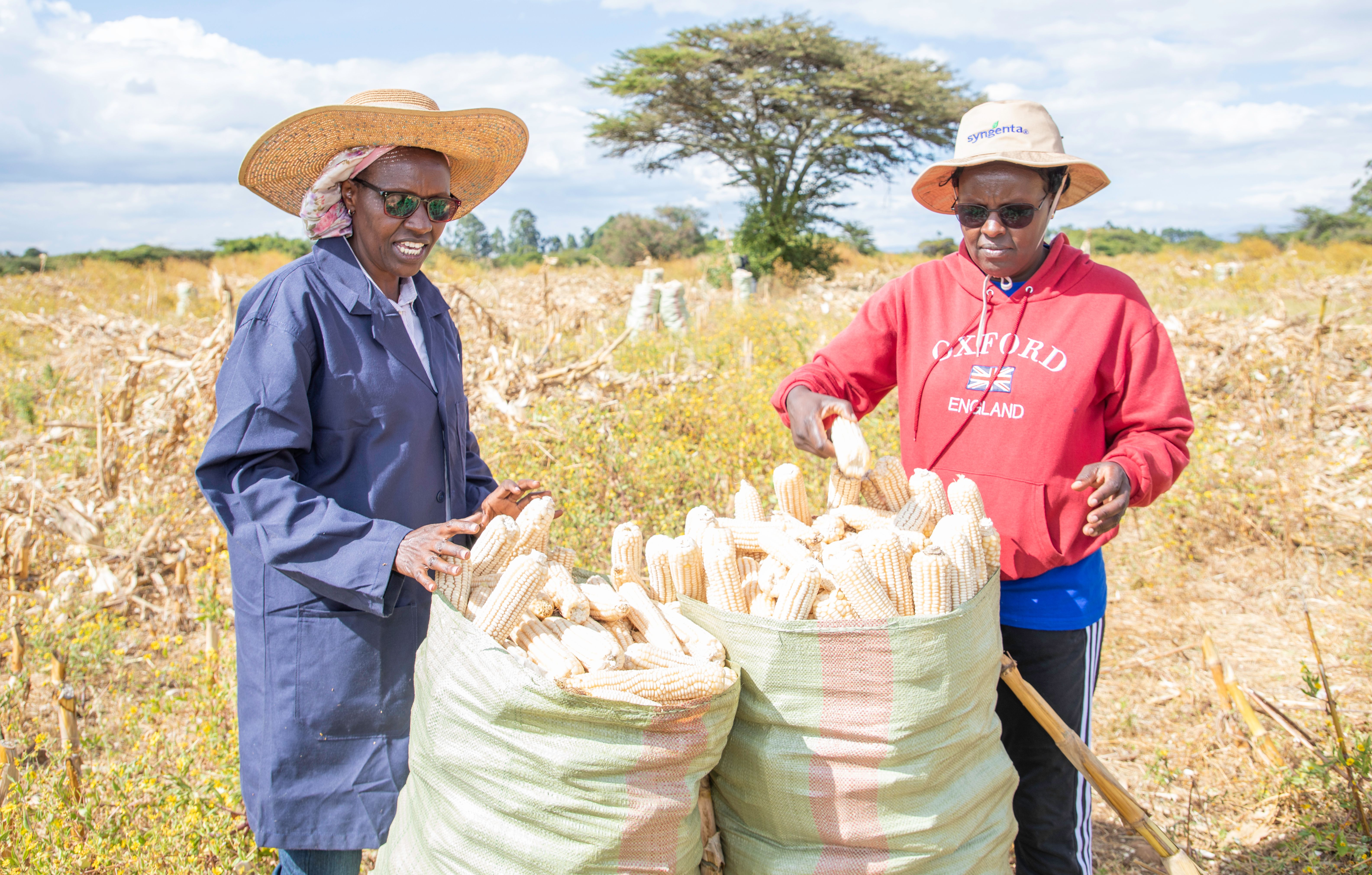Reading time:4 min read
Closing the gender gap for women in Agriculture in 2023
If you have a bag of grains or tray of vegetables in your kitchen today, there’s a 50% chance it was produced by a female farmer. About 80% percent of Africa’s food is produced by small-scale farmers and women account for 43% of this workforce. These are women who till the soil, work tirelessly to feed their households, and even strive to feed a bigger family: Africa’s growing population.
However, an African female farmer today is a farmer who bears all the burden of food production on her tired, busy shoulders with little or no access to land, credit, technology, and markets. In Sub-Saharan Africa, only 15% of landholders are women and they receive less than 10% of credit and 7% of extension services compared to their male counterparts, a report by FAO revealed. For instance, in Nigeria, women farmers own a smaller share of farmland than men and can’t access credit without consent from their husbands.
Essentially, equalizing the gender gap in agriculture could boost food productivity and sustain food security for an ever-growing population. We need to level the agricultural playing field for women farmers and address the barriers keeping them from accessing adequate credit for investments in their agribusiness as well as quality farm inputs, advanced farming tools, and techniques to not only increase productivity but bolster their linkages in the food chain.
To close the gender gap in Africa’s food systems, we need to first establish an intrinsic perception of women as being able to participate in the value chain through financially viable projects. Women are often perceived as a higher risk for financial institutions and money lenders, and this hinders their access to cash flow or finance. As a result, women farmers experience major constraints in seeking access to agro-inputs for increased productivity.
A big part of the solution to changing this perception is to create policies that give property ownership rights to women, increasing their chances of getting credit loans to bolster their productivity on farms. But to make policies for women means to acknowledge the participation of women in fueling growth in the food systems and prioritize women’s education and empowerment across all sectors.
Second, increasing the penetration and adoption of tech-enabled solutions among women farmers is critical to their success in the field. With the significant advances made in the penetration of digital innovations to drive agricultural production, adoption by farmers, especially women continue to be low. Hence, we must prioritize digital literacy training for these women and foster programs that encourage inclusivity and help women learn new skills, receive, and deliver market-related services in the food space.
Although there is no blueprint for achieving gender equality in agriculture, we believe that if women are given access to inputs, and resources and shown the same support as men, agricultural output could increase and potentially reduce food insecurity. With these specific limitations towards women dealt with, we come back to a drive for infrastructure and market support needed to drive productivity and livelihood improvements for smallholder farmers. Unlocking finance, creating market linkages, providing storage solutions, and end-to-end extension support will enable even greater contributions of women farmers to our food systems in Africa.
Here at AFEX, our operations align with the United Nations SDG 5, which is to achieve gender equality and women’s empowerment, in line with the 2023 Agenda for Sustainable Development. With the right support in storage, capital, and markets, women can make farming and agriculture work. To drive change for women farmers, we are prioritizing women’s leadership to act as a voice for them. Our goal in working with women farmers is to help them create sustainable and profitable farm businesses, where they are financially included in the system and have access to credit and efficient markets.
Women are the face of our food systems and the frontline of ensuring Africa achieves SDG1, zero hunger, SDG 2, No poverty, and SDG 5, gender equality. In 2023, we must work collaboratively to ensure they have access to the basic tools to make them thrive and improve their livelihoods.
Written by: Nancy Olisakwe, Vice President, Clearing and Settlement AFEX.
